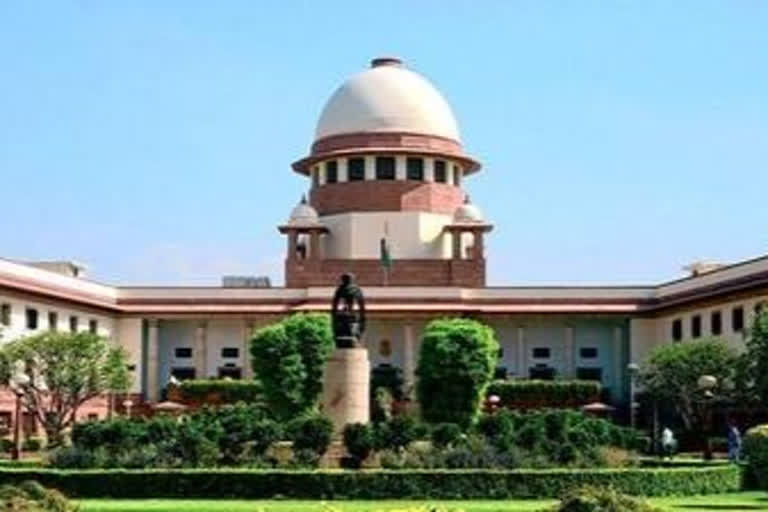New Delhi: Owing to the prevailing COVID-19 situation, the Supreme Court has been working online since March. Its e-committee decides and reviews upon the online services to be provided to facilitate the advocates in filing and arguing cases.
The top court has facilitated e-filing of petitions, mentioning of cases is being done without physical appearance, and cases are being heard in virtual courts where the judges and advocates appear from their residence or offices. Keeping in mind that every person might not have a computer, the court has also opened few places in New Delhi from where the advocates can argue their cases online.
In addition to the above, the apex court yesterday allowed usage of instant messaging applications, including WhatsApp, emails and fax for serving notices and summons. This indicates that gradually the court is shifting completely online owing to the prevailing situation. Judges have noted that though physical courts cannot be replaced, it is important to have a system in place for times like these when physical appearance is not possible.
Speaking to ETV Bharat on the online shift, Advocate Prithivi Raj Chauhan welcomed the step. He said that shifting online is the demand and "if we don't follow, we will be left behind." Talking about the advantages, Chauhan said that online service will save a lot of time and will provide effective service.
"Notices used to take time, they remained unserved at times and it had to be sent again. Online notice will provide effective service," Chauhan said.
Read: SC directs transfer and probe to ED of all home buyers' cases against Amrapali group
Further, Chauhan added that the online service will ensure the timely appearance of parties, save a lot of time and will reduce the burden on courier companies as well, which are heavily burdened during the lockdown.
Commenting on the non-availability of technology to every advocate and insufficient infrastructure to shift completely online, Chauhan said, "When anything starts, it has a lot of troubles, but gradually you become habitual and it seems easy." He said that the internet is available to everyone these days and the advocates would adapt gradually.
He also pointed out that bail is a fundamental right and the lockdown should not affect that, therefore the court has come up with online options for serving notices/summons.
Completely shifting online should have seemingly lessened the paperwork. However, in the Supreme Court, that is not the case yet.
Read: Not a two-group company, have no quasi-partnership' with Cyrus Investments Pvt Ltd: Tata Sons to SC
Chauhan clarified that though petitions can be filed online, there are three hard-copies which have to be obtained and the online services have not reduced the paper usage as such. But eventually, when people get habitual, it will get paperless, added Chauhan.
Though the court is adapting itself to the new online era, there seems a long way to go before it becomes efficient. The cases which are heard online often have technical glitches. Though there is a helpline provided for addressing such glitches, the situation does not seem to improve as such.
Often the video stops, the audio is interrupted or the communication among judges and advocates is disturbed. Yesterday, during a hearing when CJI SA Bobde was unable to communicate to an advocate, he asked the staff to prepare a big board which can be shown on screen for communicating when the audio is an issue.



